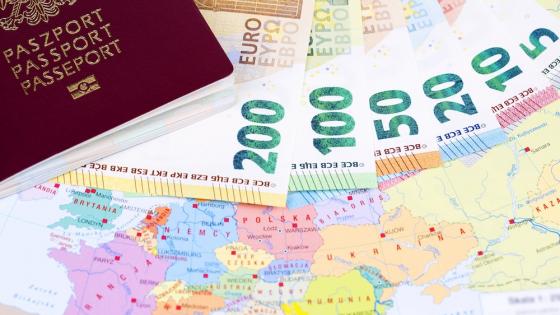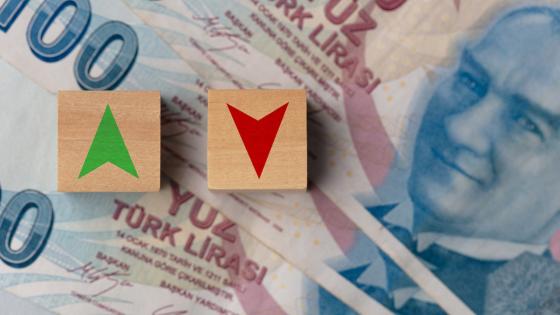There is currently a debate in the EU about the abuse of the sovereign rights of countries to grant citizenship. It was sparked by the flourishing market in so-called 'golden passports': individual states that sell rights to residence or citizenship to all-comers – as long, it seems, as they are willing to pay. Because of the right to free movement in the EU, this automatically becomes a right to settle in any country within the EU.
The flourishing market for golden passports
With the right financial consideration, the government of, say, Malta or Cyprus, can effectively give someone the right to live and do business in Germany, France, or any other EU country they choose. The criteria for admission are determined by the country selling the citizenship or residence right, and there is nothing to prevent this from being entirely financial. Buyers pay a large sum to the state treasury – or pledge even higher investments in real estate or business – in the country that is offering citizenship.
Neate (2019) illustrates the size of the international market. He reports on a three-day trade fair in a London hotel at which representatives from many countries set out their stalls. Among them the prime ministers of three small countries – St. Lucia, Montenegro and Albania – represented the bargain basement. Citizenship of these countries costs about $100,000.
The financial hurdle to gain citizenship of an EU member state is higher. Scherrer and Thirion (2018, Annex 2) have summarised the price offers and services made by many member states. Malta offers citizenship for around €1.15 million, including fees, though there is an agreement with the European Commission that limits the number of passports. A passport is granted after one year, and legally the citizen does not need to physically be in the country. Cyprus has a comparable programme.
Countries such as Bulgaria, Greece, Hungary and Portugal do not offer citizenship directly, but sell permanent residency with an option to acquire citizenship after a few years.
The European Commission (2019) has criticised these transactions and describes possible risks: security, the spread of organised crime, the growth of money laundering, corruption, and tax evasion.
Bought citizenship and civic loyalty
Buying a passport is not the traditional way of becoming a citizen, and so raises questions. Often birth in the country, or the citizenship of parents, is the decisive criterion for citizenship. A smaller number of citizenships are also granted after a long period of fault-free residence in the country. In all three cases, natural ties between the individual, the state, and its community already exist, or develop.
These ties are not trivial for the healthy functioning of a state community. For example, such bonds facilitate the financing of state tasks (Konrad and Qari 2012). We can assume that if citizenship is purchased, it is far less likely there will be a natural bond between state and citizen. When it is possible to buy citizenship, then it becomes a commodity. This could change attitudes of established citizens towards their country. This possibility has led to criticism of the trade in citizenship. For example, many of the contributions in a volume edited by Shachar and Bauboeck (2014) are emphatic in their criticism of this trade.
The nation as a club with entry fees
In a recent paper (Konrad and Rees 2020), we take a fresh look at the phenomenon, based on an economic analysis. We suggest that individual states can be thought of as clubs, a characterisation that perhaps fits better than one might think at first.
Clubs are distinct groups of people (the members). In the club:
- the existing members decide on which new members to admit;
- they also decide on the entry requirements, and a common requirement is that new members must pay an admission fee;
- existing members will benefit if new members are charged high admission fees;
- but they also may worry that new members would change the character of the club.
If membership of your club has, until now, been subject to special admission requirements and conditions – you must be a keen golfer, a successful author, a well-known wit, or a much-decorated soldier – but there is a change to the system and now new members simply pay money to join, this could spoil the spirit of community and reduce the willingness of you and your fellow existing members to engage in the life of the club.
Existing members of a club will therefore consider carefully how many new members, with what types of character and personality, they would like to admit – and for what level of admission fees. Most clubs would probably not make willingness to pay some specific, high membership fee a sufficient condition for membership.
Groucho Marx wrote in his resignation from the Friars Club: "I don’t want to belong to any club that would have me as a member”. Similarly, many people would not want to belong to a club where their money was the sole requirement for admission, though such a club might be an excellent subject for satire.
False incentives in a meta-club
In the EU context, however, there is an additional factor: with the creation of the Union, the member states created a club of clubs – a kind of meta-club. The costs of this meta-club are distributed among the member states, and the benefits and services resulting from the meta-club are available to all citizens, including the new members. This is independent of which club (i.e. which country) they initially joined when they acquired citizenship. Anyone who is a member of one of these clubs is also automatically a member of the meta-club. However, only the admitting club enjoys the fees paid by new members.
If additional members in one country have a negative influence on the quality of the meta-club, the admission of new members in one country creates a negative externality for citizens of other countries. Therefore, the admission decisions are no longer fully independent. They are strategically related to each other because the admission of new members in one country influences the meta-club quality, and thus the attractiveness of being a citizen in any other EU member state.
We examine the market equilibrium that emerges when all countries try to maximise the benefits to their own existing citizens by selling citizenship independently. In the model, each country sets its admission fees. The Nash equilibrium of the different admission fees for new citizens and the resulting immigration depends on whether new citizens remain in the country of entry, or use entry as a gateway to other countries in the EU. In any case, the total number of admissions is too large. This is because the selling states do not take into account the negative externality on the others.
To the extent that the citizenships of different countries are not regarded as perfect substitutes by the buyers, it is mainly the small countries that sell new memberships at lower prices. This theoretical finding fits in well with the qualitative findings on access conditions, and the status granted to them among the EU member states, in Scherrer and Thirion (2018).
Dwarf states and the back-door problem in the EU
For small member states, another scenario is particularly relevant: people may buy their citizenship from one of these small countries, but choose somewhere else in the EU as their place of residence. For them, citizenship is a back-door entry to the meta-club called the European Union.
In this case, the citizenships offered by different states become perfect substitutes. Very small countries collect fees for new citizens, but almost completely externalise the effects on the quality of the meta-club. Without further restrictions, cut-throat Bertrand competition will arise between these dwarf states. The resulting equilibrium then has unpleasant characteristics for existing citizens of the EU, but also for would-be citizens.
In the equilibrium, so many new citizens find their way into the EU that the quality or attractiveness of citizenship falls to the level of attractiveness of citizenship of non-EU countries – the prices of citizenship in St Lucia, Montenegro and Albania therefore become the norm (assuming that they do not respond by slashing prices). The added value to citizens of belonging to the meta-club falls to zero. This applies to existing citizens as well as new members, but the result is particularly disadvantageous for existing citizens. In this case, there is no positive income from the sale of citizenships, and the advantages of belonging to the meta-club disappear completely.
The simplifying assumptions of theoretical Bertrand competition result in an extreme equilibrium, but the point of the analysis is to clarify the trend. What prevents price competition among the countries who already sell citizenship lowering the price of a passport, causing other countries to join them in the race to the bottom?
This is precisely analogous to the case of international tax competition, and the incentives countries have to cut their corporate tax rates so as to attract inward investment from multinational companies. This phenomenon has prompted the OECD to introduce its Base Erosion and Profit Sharing (BEPS) initiative, seeking international cooperation to stop this happening. The market in citizenship has not reached that point, but collective action at the EU level would stop it reaching that stage.
Citizenship rights should be reassigned
This implies that the competencies for the granting of citizenship rights should be reassigned in such a way that the European level of government has a much greater say. There are indications that the influence of the EU on individual states is tending towards an attempt at quota solutions.
Drawing on a well-established literature in oligopoly theory, in our paper we show that care has to be taken in the way in which quotas are set. For each seller there would be a quota level that is desirable from the point of view of the EU as a whole (assuming the proceeds of sales were shared among all countries) and that would result in a stable equilibrium for the selling countries. But setting the wrong quota levels would result in no effective improvement, or a 'mixed strategy equilibrium' in which countries choose prices randomly over some range. Whatever they choose, the level of sales would be non-optimal from the point of view of the EU – the meta-club – as a whole.
Perhaps there is a tendency in official circles to shrug shoulders, or to view this as an informal way that resources are transferred to the less well-off countries in the EU. This could be a big mistake.
References
European Commission (2019), Investor citizenship and residence schemes in the European Union, Report from the Commission to the European Parliament, the Council, the European Economic and Social Committee and the Committee of the Regions, COM(2019) 12 Final.
Konrad, K A, and S Qari (2012), "The last refuge of a scoundrel? Patriotism and tax compliance", Economica 79(315): 516-533.
Konrad, K A, and R Rees (2020), "Passports for sale: the political economy of conflict and cooperation in a meta-club", European Journal of Political Economy 62.
Neate, R (2019), "London ballroom hosts showcase event for 'golden Passports'", The Guardian, 16 November.
Scherrer, A, and E Thirion (2018), "Citizenship by Investment (CBI) and Residency by Investment (RBI) schemes in the EU, State of play, issues and impacts", European Parliamentary Research Service, Value Unit, PE 627.128.
Shachar, A, and R Bauboeck (2014), "Should Citizenship be for Sale?" European University Institute working paper RSCAS 2014/01.


